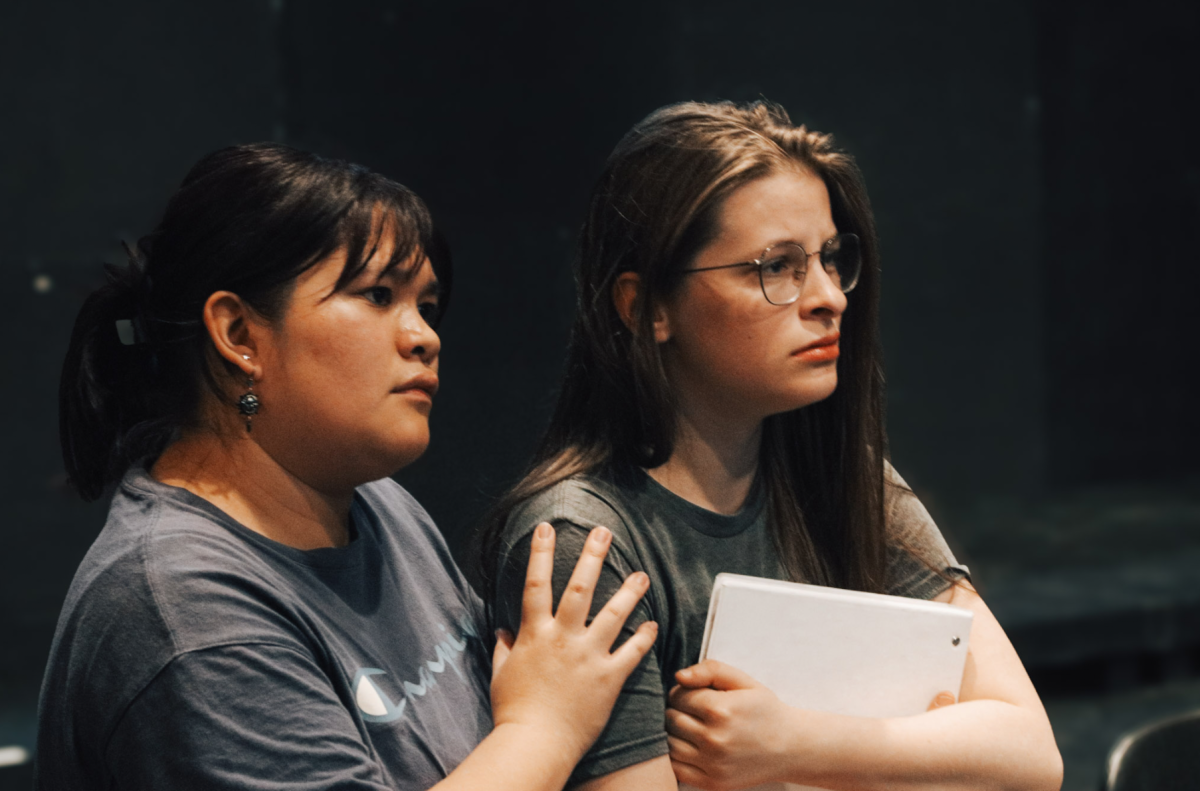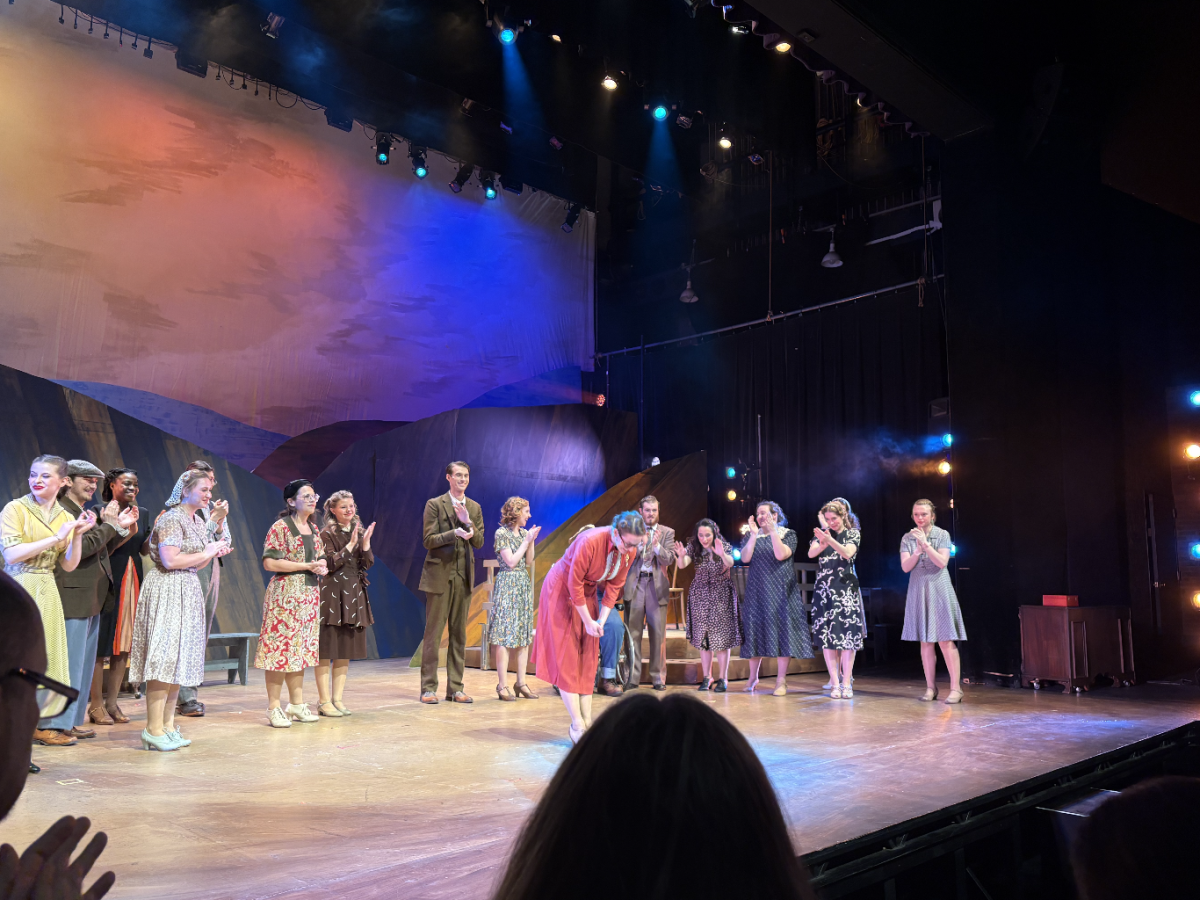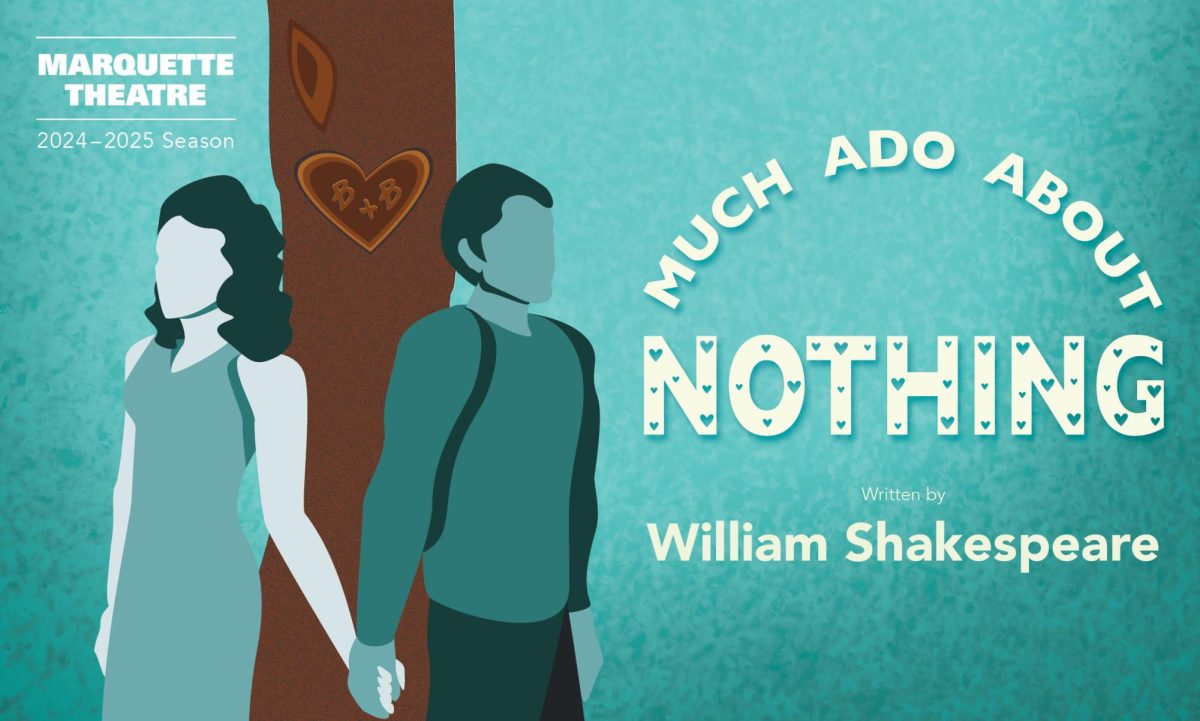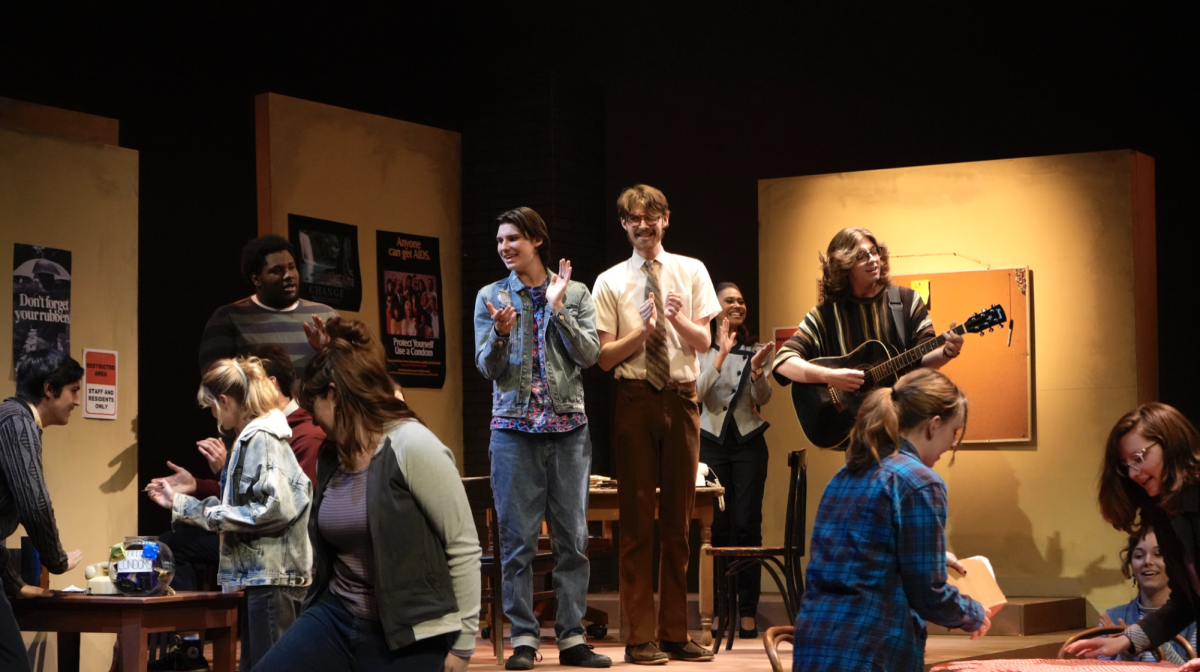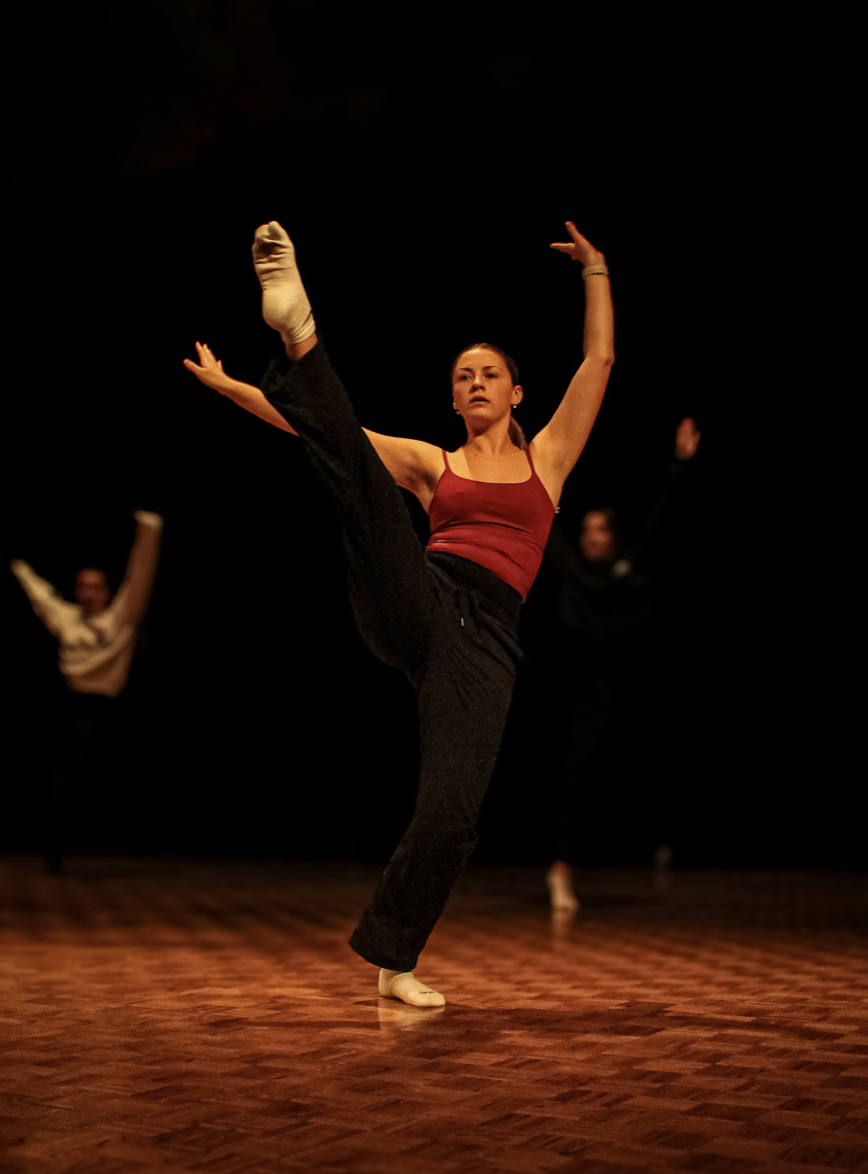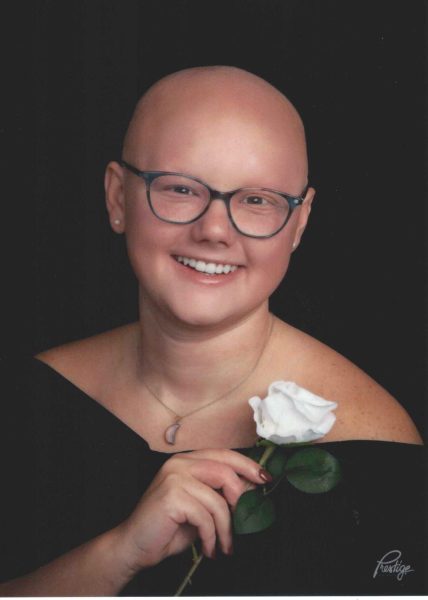Marquette Theatre’s “Truth Be Told” season continues next weekend, with the premieres of “Sanctuary City” on Nov. 15 and “Much Ado About Nothing” on Nov. 16.
These two shows are a part of their “Second Stage Series,” where two shows run in rotation with a personal style of seating, allowing the acting to be the highlight of the shows. This is the fourth year that Marquette Theatre has done the “Second Stage Series.”
Jamie Cheatham, associate professor and head of performing arts, said it was a department decision to continue the “Second Stage Series,” and student feedback led them to change and adapt the series over the years.
“The one thing that we have learned is when we did ‘From White Plains’ and ‘The Wolves,’ where it was an all-female cast and an all-male cast, our students said, ‘We don’t want to do that again. We want to commingle more,’” Cheatham said. “We listened, and right now we are choosing shows for our next season, which again will include a Second Stage Series.”
Cheatham, while being the artistic director for both shows, is also the director for “Much Ado About Nothing.” “Much Ado About Nothing” by William Shakespeare is a classic Shakespearean comedy. The show takes place around the two main characters, Beatrice and Benedick, who become misled about each other because of mischief and misunderstandings. This gap in communication between them leads to much witty banter and even some romantical relationships, highlighting the power of perception.
Cheatham said he believes this show is playing importance in the world right now, as it provides an escape for people, while pointing out the danger of disinformation.
“I think we could all use a little love and a little laughter. But I think that play also has important themes, as this is a play about disinformation,” Cheatham said. “The villain of this play spreads lies, and ‘Much Ado’ is made out of these lies.”
Joshua Soape, a senior in the College of Arts & Sciences, plays Benedick, the male lead known for his wittiness and arrogance in “Much Ado About Nothing.” He spoke about what it has been like for the department to run two shows at the same time and the energy it has brought with it.
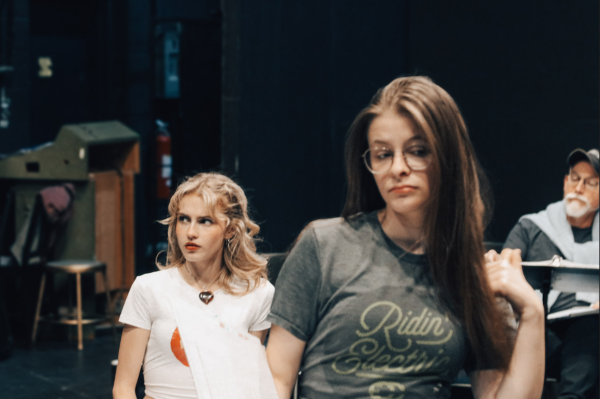
“There’s just more excitement about what is coming out. The cast of both shows really supports each other,” Soape said. “At the end of the night, when we’re all tired in the same way, it creates double the reason to be excited for such different types of theatre.”
Soape, similar to Cheatham, said he has also felt that the show holds strong importance to all audiences right now, and emphasizes how live theatre causes the audiences to immerse themselves in the themes and message of the show.
“Artists, and theatre artists specifically, our way of fighting back, or making change, is through our art,” Soape said. “You can watch a movie, and then when you’re done with the movie, you just go on about your day. When you go to see a play, you have to go, you have to sit there, you can’t be on your phone and you’re just immersed. When you leave, you’re probably still thinking about it and discussing it.”
While “Much Ado About Nothing” is a bit of a lighter show with some deeper messages, “Sanctuary City” by Martyna Majok, takes on a bit heavier topic throughout its’ entirety. Set in post-9/11 Newark, New Jersey, two teenagers without Green Cards grapple with the risks they take by staying in the United States, the only home they have ever known. It covers the topics of DREAMers, love and friendship. At the base level, the show can seem extremely different from “Much Ado About Nothing,” especially with its small cast of only three people.
Patricia León de la Barra, a junior in the College of Arts & Sciences, plays G, the female teenager seeking sanctuary from her toxic home. León de la Barra said how there are challenges when putting such a small production together.
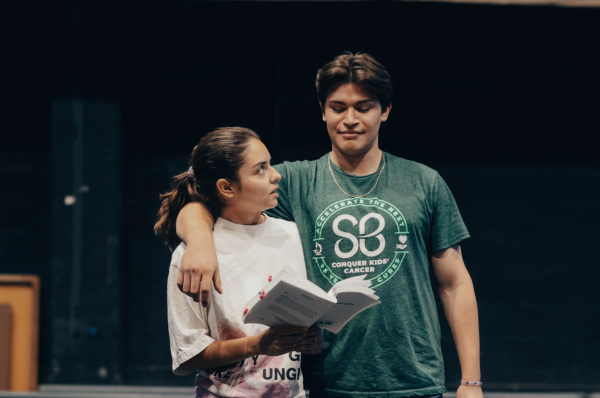
“With a smaller cast, you have an infinite amount of lines. It was really daunting because the show is so well-written,” León de la Barra said. “Not only do you have to memorize the basic building blocks of a show like lines and blocking, but you have to do the playwright justice. You have to capture the complexity and psychology of this fully-fledged character because the playwright gives you all of the tools.”
León de la Barra said there is power behind the message of “Sanctuary City,” and how It tells a story about undocumented immigrants that everyone needs to hear right now.
“I think that we need stories like ‘Sanctuary City’ to remind us that people’s personhood exists outside of their legal status,” Barra said. “More often than not, undocumented immigrants are victims of circumstance, and that they are the backbone of this country, alongside millions of people.”
Shows start Nov. 15 and 16. For tickets and show times, click here.
This story was written by MaryKate Stepchuk. She can be reached at marykate.stepchuk@marquette.edu.


